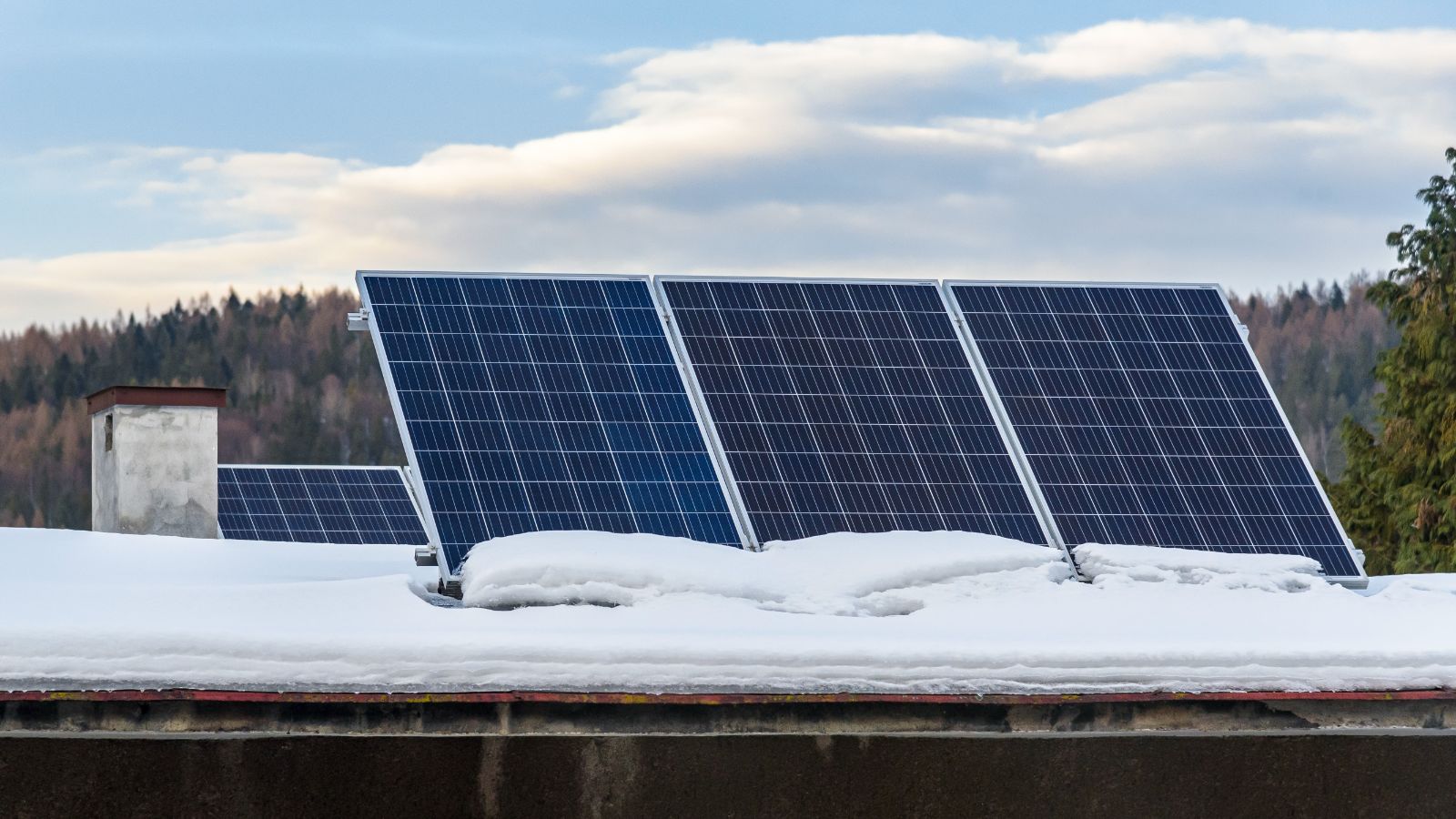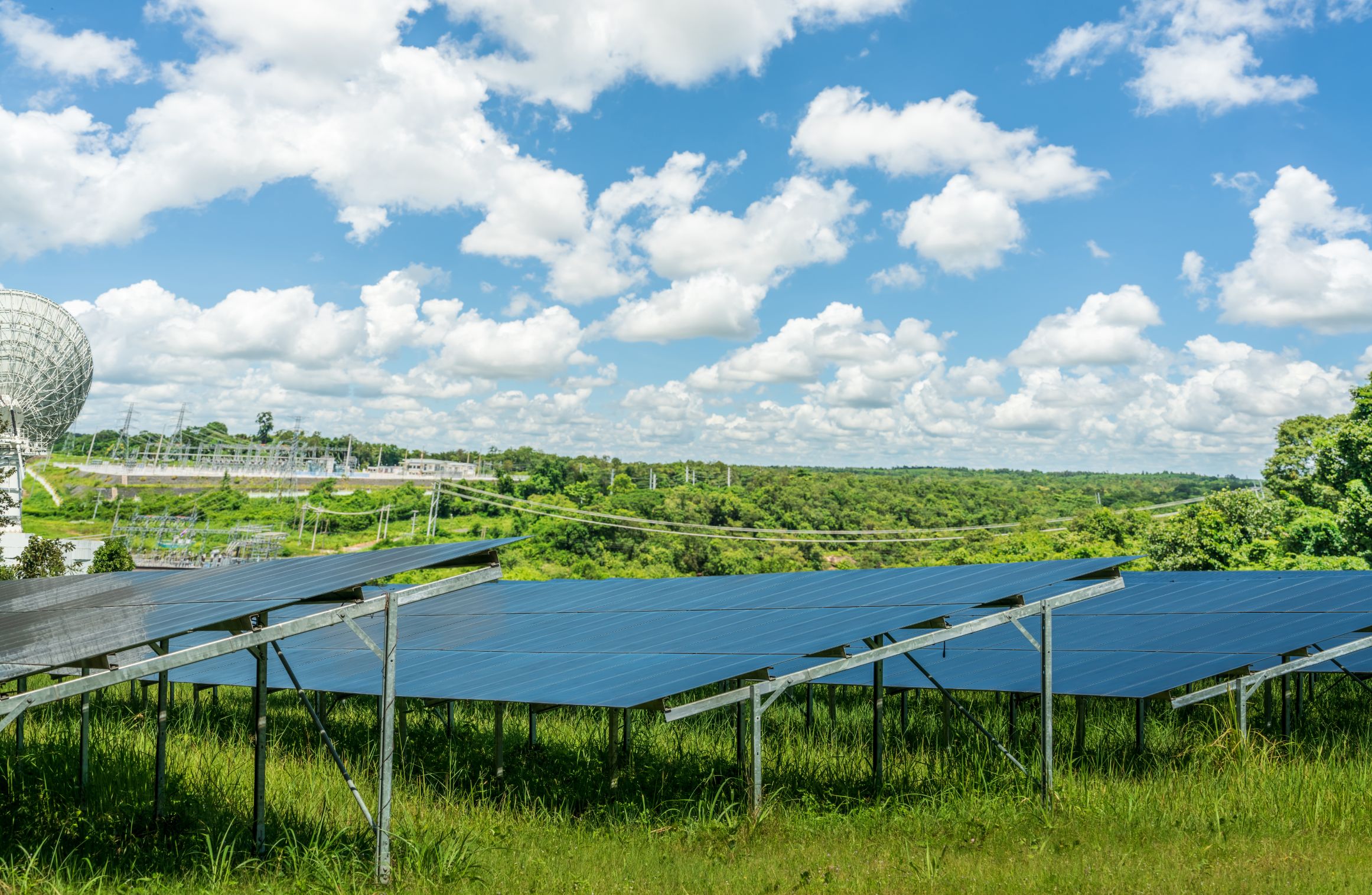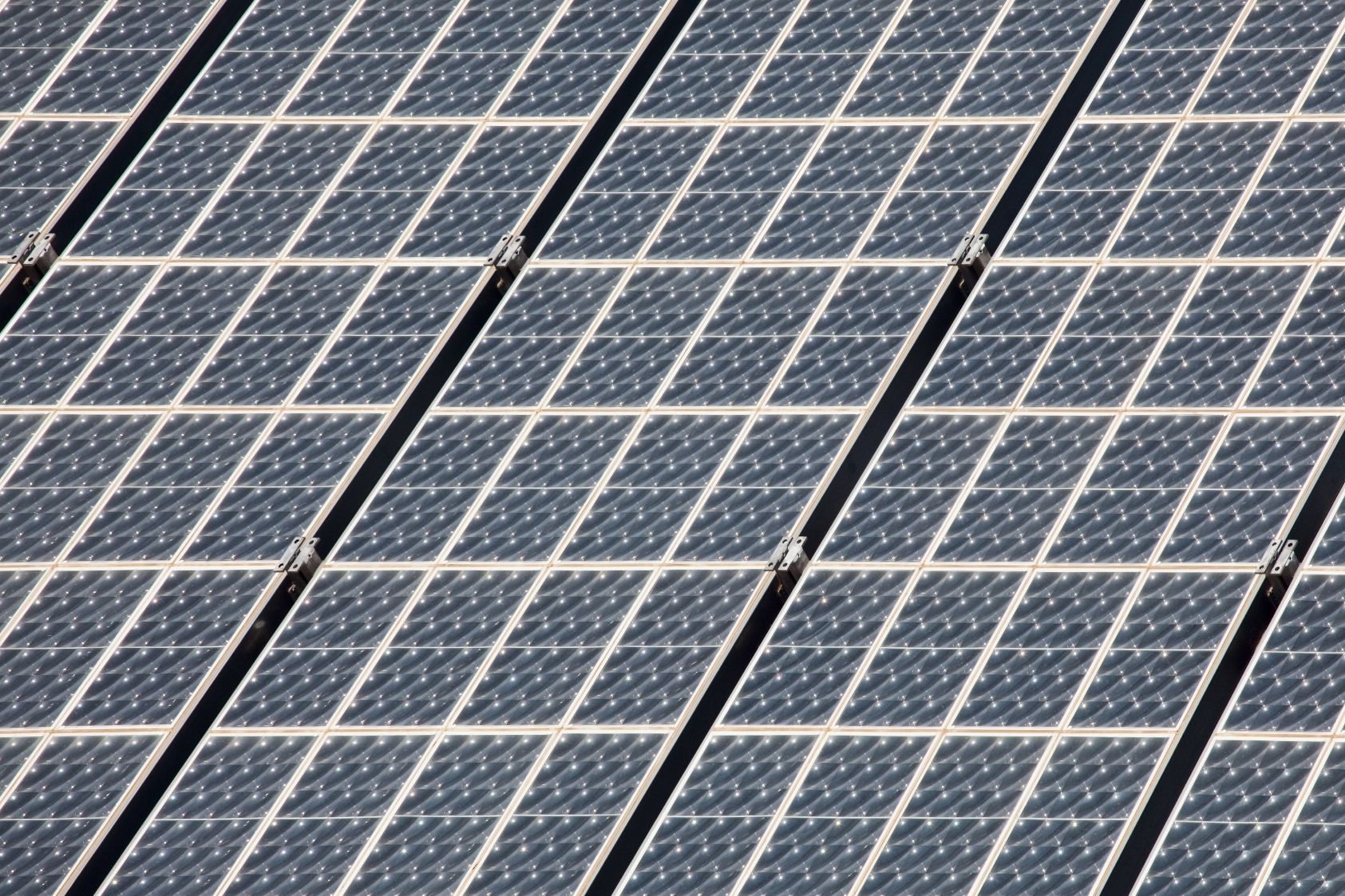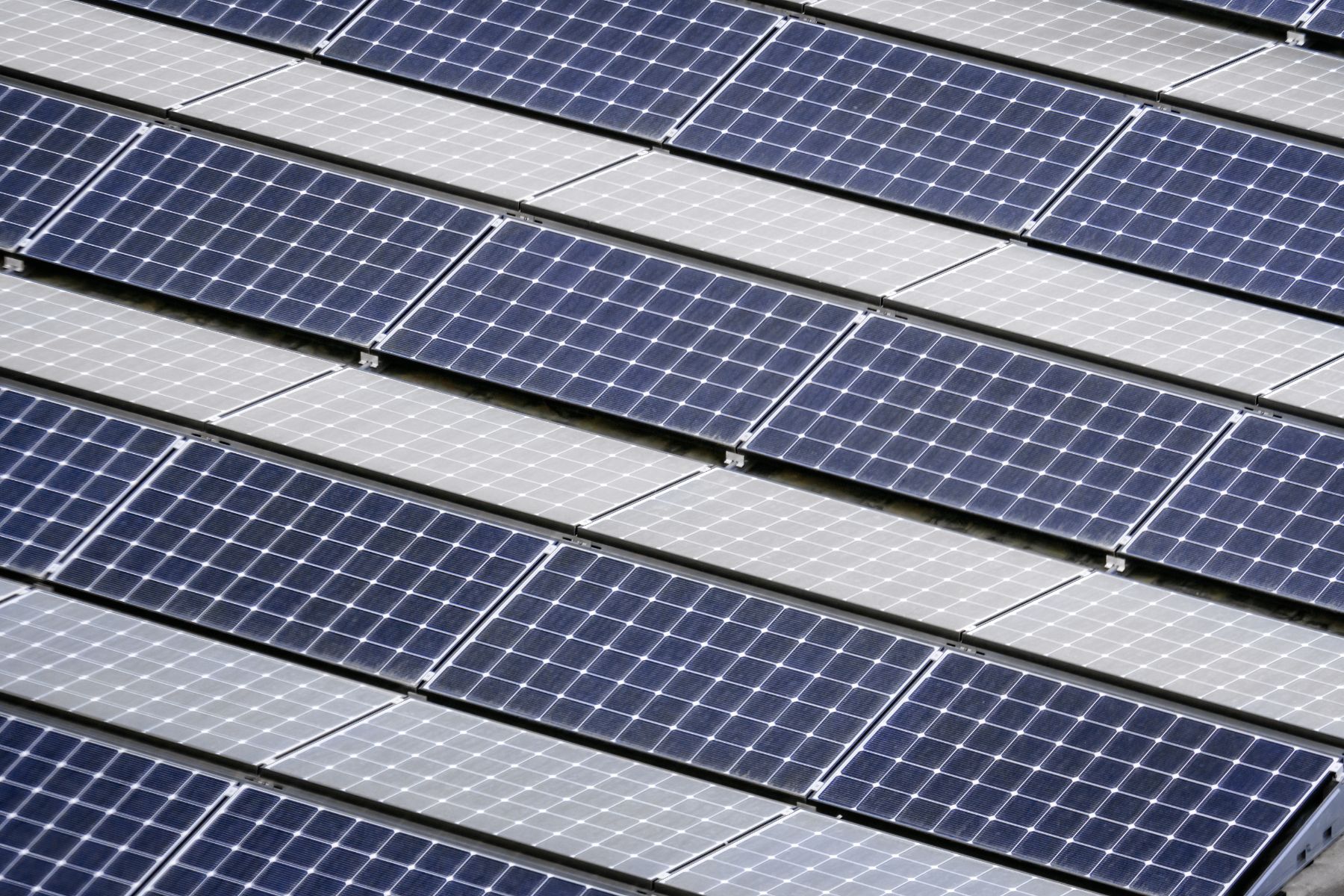As we look ahead, it is clear that solar-powered generators will play a pivotal role in revolutionizing how we generate and consume electricity. With advancements in technology, declining costs, and increasing environmental consciousness, solar-powered generators are set to become a mainstream choice for individuals and businesses seeking sustainable and reliable off-grid energy solutions. In short, the future holds a bright and promising trajectory for off-grid energy solutions with solar-powered generators.
The Growing Demand for Off-Grid Energy Solutions
In a world that is increasingly focused on sustainability and environmental consciousness, off-grid energy solutions have gained significant traction. As the demand for clean, reliable, and independent power sources grows, solar-powered generators have emerged as a popular choice for off-grid energy needs. These innovative devices harness the power of the sun to generate electricity, making them an efficient and eco-friendly alternative to traditional generators. With their numerous advantages and growing popularity, the future looks promising for off-grid energy solutions with solar-powered generators.
One of the key drivers behind the growing demand for off-grid energy solutions is the desire for energy independence. People are no longer content with being solely reliant on the power grid, which can be vulnerable to outages and disruptions. Solar-powered generators offer a way to break free from this dependence by providing a self-sustaining source of energy. Whether it’s for remote cabins, outdoor adventures, or emergency backup power, individuals and businesses alike are recognizing the benefits of having an independent energy solution. The demand for off-grid energy solutions is expected to continue rising as more people seek freedom from the limitations of traditional power sources.
Another factor contributing to the surge in demand for off-grid energy solutions is the increasing accessibility and affordability of solar technology. Over the years, advancements in solar panel efficiency, battery storage, and manufacturing processes have made solar-powered generators more efficient and cost-effective. As a result, they have become an attractive option for individuals and communities looking to reduce their carbon footprint and save on energy costs. The decreasing prices of solar panels and batteries, coupled with government incentives and tax credits, have made off-grid energy solutions even more appealing. This affordability factor is likely to fuel the adoption of solar-powered generators and drive the growth of off-grid energy in the future.
Furthermore, the rise of renewable energy and the urgent need to combat climate change have put off-grid energy solutions in the spotlight. Solar-powered generators offer a clean and sustainable alternative to fossil fuel-based generators, significantly reducing greenhouse gas emissions and air pollution. With increasing concerns about the environmental impact of traditional energy sources, governments and organizations around the world are prioritizing the development and adoption of renewable energy technologies. This focus on sustainability will undoubtedly create a conducive environment for the growth of off-grid energy solutions, making solar-powered generators an integral part of the future energy landscape.
As we look ahead, the future of off-grid energy solutions with solar-powered generators appears bright. The growing demand for energy independence, coupled with the accessibility and affordability of solar technology, and the global push for renewable energy, all point towards a promising outlook. Off-grid energy solutions have the potential to revolutionize the way we generate and consume electricity, providing a cleaner, more resilient, and sustainable energy future. With ongoing technological advancements and continued support from individuals, communities, and governments, the off-grid energy industry is poised for significant growth, shaping a future where energy is abundant, reliable, and environmentally friendly.
An Overview of Solar-Powered Generators

Imagine a world where you can generate electricity from the sun, no matter where you are. That’s the power of solar-powered generators, a remarkable innovation that is revolutionizing off-grid energy solutions. These portable devices harness the sun’s energy and convert it into electricity, providing a clean, renewable, and convenient source of power. In this section, we’ll take a closer look at solar-powered generators, how they work, and their incredible benefits.
At the heart of a solar-powered generator are photovoltaic (PV) panels, which are made up of interconnected solar cells. These cells are specially designed to absorb sunlight and convert it into direct current (DC) electricity. The PV panels are typically made from semiconductor materials, such as silicon, that have the ability to release electrons when exposed to sunlight. This process, known as the photovoltaic effect, creates an electric current that can be harnessed for various applications.
To make the electricity generated by the solar panels usable, solar-powered generators also include a battery storage system. The excess electricity produced by the panels is stored in these batteries for later use, allowing you to have power even when the sun is not shining. This feature makes solar-powered generators highly versatile, as they can provide continuous power supply during cloudy days or nighttime. The stored energy can be used to charge electronic devices, power appliances, or even support an entire off-grid system.
One of the greatest advantages of solar-powered generators is their portability. Unlike traditional generators that rely on fossil fuels, solar-powered generators are lightweight, compact, and easy to transport. They are designed for outdoor adventures, camping trips, remote worksites, and emergency situations. With their built-in handles and wheels, you can effortlessly move them from one place to another, ensuring you have power wherever you go. The convenience and mobility of solar-powered generators make them a popular choice among outdoor enthusiasts, RV owners, and those living in remote areas.
In summary, solar-powered generators offer a clean, renewable, and portable solution for off-grid energy needs. With their photovoltaic panels and battery storage systems, they harness the power of the sun to generate electricity, providing a sustainable and reliable source of power. Whether you’re seeking energy independence, reducing your carbon footprint, or preparing for emergencies, solar-powered generators are a practical and eco-friendly choice. As technology continues to advance, we can expect to see even more efficient, powerful, and affordable solar-powered generators in the future, further propelling the adoption of off-grid energy solutions.
Implications for Off-Grid Energy

The rise of solar-powered generators and off-grid energy solutions carries significant implications for various aspects of our lives. From environmental sustainability to economic benefits, these implications shape the future of energy consumption and have far-reaching effects.
One of the most notable implications of off-grid energy solutions is their positive impact on the environment. Solar-powered generators produce clean and renewable energy, reducing reliance on fossil fuels and minimizing greenhouse gas emissions. By adopting these sustainable alternatives, we can contribute to the fight against climate change and work towards a greener future. The widespread use of solar-powered generators could potentially lead to a significant reduction in air pollution, as they eliminate the need for traditional generators that release harmful emissions. This shift towards cleaner energy sources aligns with global efforts to transition to a low-carbon economy and create a sustainable planet for future generations.
Another implication lies in the increased energy resilience and independence offered by off-grid solutions. Traditional power grids are susceptible to disruptions caused by natural disasters, grid failures, or maintenance issues. Solar-powered generators provide a reliable backup power source during such events, ensuring that essential services, businesses, and households can continue to function. This enhanced energy resilience becomes particularly crucial in remote areas where connecting to the main power grid might be challenging or expensive. Off-grid energy solutions offer these communities the opportunity to access electricity and improve their quality of life, opening up possibilities for education, healthcare, and economic growth.
Additionally, the economic implications of off-grid energy solutions are significant. Solar-powered generators offer cost savings over the long run, as they eliminate the need for purchasing fuel or relying on grid electricity. Once the initial investment is made, the sun’s energy is essentially free, making solar-powered generators a financially viable option. This is especially beneficial for individuals, businesses, and communities that are looking to reduce energy costs and increase their financial sustainability. Moreover, the growth of the off-grid energy sector can stimulate job creation, with opportunities arising in solar panel manufacturing, installation, and maintenance, further contributing to economic development.
The implications of off-grid energy solutions with solar-powered generators are profound and wide-ranging. From environmental benefits to increased energy resilience and economic advantages, the future holds great potential for these innovative technologies. As more individuals and communities embrace off-grid energy solutions, we can anticipate a shift towards a more sustainable, independent, and resilient energy landscape. By harnessing the power of the sun, we can pave the way for a brighter future that is powered by clean, renewable energy sources.
Environmental Benefits of Solar-Powered Generators

Solar-powered generators not only provide an efficient and reliable source of off-grid energy but also offer a host of environmental benefits. As we explore the future of off-grid energy solutions, it is essential to understand the positive impact these solar-powered devices have on our planet and the natural world around us.
First and foremost, solar-powered generators are a clean and renewable energy solution. Unlike traditional generators that rely on fossil fuels such as coal, oil, or natural gas, solar-powered generators harness the power of the sun to generate electricity. This means they produce zero greenhouse gas emissions during operation, helping to combat climate change and reduce air pollution. By adopting solar energy, we can significantly decrease our carbon footprint and contribute to a healthier and more sustainable environment.
Another environmental benefit of solar-powered generators is the conservation of natural resources. Fossil fuels are finite resources, and their extraction and consumption have detrimental effects on ecosystems and landscapes. Solar power, on the other hand, relies on an abundant and virtually limitless source—the sun. By tapping into this renewable resource, we reduce our dependence on finite resources and minimize the negative ecological impacts associated with fossil fuel extraction. Solar-powered generators play a crucial role in preserving our natural heritage and ensuring a greener future for generations to come.
Solar-powered generators help mitigate noise pollution, a commonly overlooked but significant environmental issue. Traditional generators, particularly those powered by internal combustion engines, generate considerable noise during operation. This noise can be disruptive to both humans and wildlife, affecting the tranquility of natural habitats and causing stress and discomfort. Solar-powered generators operate silently, as they do not rely on mechanical engines or moving parts. This not only enhances the overall user experience but also contributes to a quieter and more peaceful environment, allowing us to enjoy the serenity of nature without unnecessary disturbances.
Solar-powered generators offer a multitude of environmental benefits. From reducing greenhouse gas emissions and air pollution to conserving natural resources and mitigating noise pollution, these devices are a significant step towards a more sustainable and eco-friendly future. As the adoption of solar energy continues to grow, we can anticipate even greater positive impacts on the environment. By harnessing the power of the sun, we have the opportunity to reshape our energy landscape and make a profound difference in the preservation and protection of our planet.
The Role of Solar-Powered Generators in Disaster Preparedness

When disaster strikes and the power grid falters, having a reliable source of electricity becomes crucial. This is where solar-powered generators play a vital role in disaster preparedness. These innovative devices provide a resilient and sustainable energy solution that can make all the difference in critical situations. Let’s explore the unique role of solar-powered generators in disaster preparedness and why they are becoming an essential component of emergency response strategies.
During natural disasters, such as hurricanes, earthquakes, or severe storms, power outages are common and can last for days or even weeks. In these situations, solar-powered generators offer a lifeline by providing a continuous supply of electricity. With their ability to harness the sun’s energy, these generators can keep essential devices and appliances running, ensuring access to crucial medical equipment, lighting, communication devices, and refrigeration for preserving food and medicine. The self-sufficiency of solar-powered generators becomes invaluable when traditional power sources are compromised, enabling individuals and communities to stay connected, informed, and safe during times of crisis.
One of the significant advantages of solar-powered generators in disaster scenarios is their fuel independence. Unlike traditional generators that require a constant supply of fuel, solar-powered generators operate solely on the energy captured from the sun. This eliminates the need for fuel transportation, storage, and replenishment, which can be challenging and even dangerous in emergencies. With solar-powered generators, there’s no risk of fuel shortages or the associated hazards of storing and handling flammable substances. This makes them a reliable and safe energy source, providing peace of mind in times of disaster.
Moreover, solar-powered generators contribute to the overall resilience and recovery of affected communities. In the aftermath of a disaster, restoring power to critical infrastructure, such as hospitals, emergency centers, and relief operations, becomes a top priority. Solar-powered generators can be deployed rapidly to provide immediate power supply in these essential facilities. Their portability and ease of use make them ideal for emergency response teams and aid organizations, enabling them to quickly establish power sources in areas where electricity is unavailable or disrupted. By supporting emergency response efforts, solar-powered generators play a vital role in saving lives, facilitating rescue operations, and speeding up the recovery process.
Solar-powered generators have emerged as indispensable tools in disaster preparedness and emergency response. Their ability to provide a reliable, fuel-independent, and portable source of electricity makes them a crucial component in ensuring the safety, resilience, and recovery of affected communities. As we continue to face the challenges of an uncertain future, solar-powered generators will become increasingly integrated into disaster management strategies, helping to mitigate the impact of emergencies and improve overall disaster resilience.
Cost Savings and Return on Investment

While the environmental benefits of solar-powered generators are widely recognized, it’s essential to also consider the cost savings and return on investment they offer. These factors play a significant role in shaping the future of off-grid energy solutions and making solar-powered generators an attractive option for individuals and businesses alike.
One of the primary cost-saving advantages of solar-powered generators is the reduction in energy expenses over time. Unlike traditional generators that require fuel, solar-powered generators rely on the sun’s energy, which is abundant and free. Once the initial investment is made in purchasing and installing the solar panels and battery storage system, the ongoing operational costs are minimal. There’s no need to purchase fuel or worry about fluctuating fuel prices. This long-term cost stability can lead to substantial savings, especially for those who rely on generators for extended periods or in remote locations where accessing fuel can be challenging and expensive.
Furthermore, solar-powered generators offer the opportunity to generate excess energy that can be sold back to the grid or stored for later use. Through net metering programs, excess electricity generated by solar panels can be fed back into the power grid, offsetting the consumer’s electricity consumption and potentially earning credits or financial compensation. This “sell back” feature allows individuals and businesses to not only offset their energy costs but also generate additional income. The ability to turn the sun’s energy into a revenue stream adds to the financial appeal and return on investment of solar-powered generators.
In terms of return on investment (ROI), solar-powered generators have a relatively short payback period. The initial upfront costs of installing a solar system may seem significant, but over time, the savings in energy expenses can quickly offset that initial investment. The exact payback period varies depending on factors such as the size of the system, energy consumption, and available incentives. However, with the decreasing cost of solar panels, the potential for tax credits and incentives, and the long lifespan of solar-powered generators, the return on investment can be achieved within a few years. This means that beyond the payback period, individuals and businesses can enjoy free or significantly reduced energy costs for many years to come, resulting in substantial savings over the lifespan of the system.
Solar-powered generators offer notable cost savings and a compelling return on investment. By eliminating or significantly reducing fuel expenses and providing the opportunity for energy generation and financial compensation, solar-powered generators provide long-term financial benefits. As the cost of solar technology continues to decrease and the availability of incentives and programs increases, the financial appeal of solar-powered generators will only grow stronger. This, coupled with the environmental advantages they offer, solidifies the position of solar-powered generators as a promising and financially viable solution for off-grid energy needs in the future.
Overcoming Challenges

While the future of off-grid energy solutions with solar-powered generators looks promising, there are still some challenges to overcome. These challenges, however, serve as opportunities for innovation and advancement in the field. Let’s explore some of the key hurdles and how they can be addressed to ensure a successful future for off-grid energy solutions.
One of the challenges facing solar-powered generators is their dependence on sunlight. While solar energy is abundant and renewable, it is not always consistently available. Cloudy days, inclement weather, and nighttime can limit the amount of sunlight that reaches the solar panels, thus reducing the electricity generation capacity. To overcome this challenge, advancements in energy storage technologies are crucial. The development of more efficient and affordable battery systems can store excess energy generated during peak sunlight hours for use during periods of low sunlight or at night. Additionally, integrating solar-powered generators with other renewable energy sources, such as wind or hydropower, can provide a more reliable and balanced off-grid energy solution.
Another challenge is the initial cost of installing solar-powered generator systems. While the long-term cost savings are evident, the upfront investment required for solar panels and battery storage can be a barrier for some individuals and businesses. However, as the demand for solar technology increases and manufacturing processes become more streamlined, the costs are expected to continue decreasing. Incentives, tax credits, and financing options also play a significant role in making solar-powered generators more accessible and affordable. Governments and organizations can further support the adoption of off-grid energy solutions by offering financial incentives and programs that encourage the installation of solar systems.
Furthermore, the integration of solar-powered generators into existing infrastructure can pose logistical challenges. Retrofitting buildings or establishing off-grid systems in remote areas may require careful planning and coordination. Collaboration between governments, utilities, and energy providers can facilitate the development of policies and regulations that promote the integration of off-grid energy solutions. Streamlining the permitting and installation processes and providing technical support and resources can help overcome the practical challenges associated with implementing solar-powered generator systems.
While challenges exist, the future of off-grid energy solutions with solar-powered generators is bright. Overcoming the limitations of inconsistent sunlight, reducing the upfront costs, and addressing integration challenges are crucial for wider adoption. Continued advancements in energy storage, cost reduction, and policy support will pave the way for a future where solar-powered generators play a significant role in our energy landscape. By addressing these challenges head-on, we can unlock the full potential of off-grid energy solutions, revolutionizing the way we generate and consume electricity in a sustainable and environmentally friendly manner.
Innovations in Energy Storage: Enhancing the Efficiency of Off-Grid Systems

While solar-powered generators have already made significant strides in off-grid energy solutions, ongoing innovations in energy storage technologies are poised to revolutionize the efficiency and effectiveness of these systems. As we look to the future, advancements in energy storage hold the key to unlocking even greater potential for off-grid energy solutions with solar-powered generators.
One of the key areas of innovation lies in improving the efficiency and capacity of battery storage systems. Batteries are crucial components of off-grid energy solutions, as they store excess electricity generated by solar panels for use during periods of low sunlight or at night. Advancements in battery technology focus on increasing energy density, reducing costs, and enhancing overall performance. This involves the development of next-generation lithium-ion batteries, such as solid-state batteries, that offer higher energy storage capacity, faster charging capabilities, longer lifespan, and improved safety features. These innovations in energy storage not only enhance the efficiency of off-grid systems but also contribute to the overall sustainability and longevity of solar-powered generators.
Another area of innovation is the integration of smart grid technologies with off-grid energy solutions. Smart grid technologies allow for more efficient management of electricity flow, ensuring optimal utilization of solar-generated power and battery storage. These technologies enable remote monitoring and control of energy production and consumption, allowing users to optimize their energy usage, maximize self-consumption, and minimize waste. Additionally, smart grid integration facilitates grid-to-grid energy trading, where excess electricity generated by solar-powered generators can be shared with neighboring off-grid systems or the main power grid. This opens up opportunities for energy sharing, increased energy resilience, and potential financial incentives for off-grid energy system owners.
Furthermore, innovative approaches to energy storage are being explored, such as the use of advanced materials and hybrid systems. For instance, researchers are exploring the potential of using materials like graphene and carbon nanotubes to improve battery performance, increasing energy storage capacity and reducing charging times. Hybrid systems that combine solar energy with other renewable energy sources, such as wind or hydropower, are also being explored to ensure a more consistent and reliable energy supply. These hybrid systems leverage the strengths of multiple renewable energy sources, offering enhanced efficiency and stability for off-grid energy solutions.
In summary, innovations in energy storage technologies are driving the future of off-grid energy solutions with solar-powered generators. Advancements in battery technology, smart grid integration, and the exploration of new materials and hybrid systems all contribute to improving the efficiency, reliability, and overall effectiveness of off-grid systems. As these innovations continue to evolve, we can expect to see even more efficient, affordable, and sustainable off-grid energy solutions in the future, further solidifying the role of solar-powered generators as a cornerstone of the energy transition.
The Future of Off-Grid Energy: Trends and Predictions

As we gaze into the crystal ball of off-grid energy solutions with solar-powered generators, several trends and predictions emerge, painting a picture of what the future holds. These forecasts highlight the growing prominence and potential of off-grid energy as we strive for a more sustainable and resilient energy landscape.
Firstly, the continued advancements in solar technology are expected to drive the widespread adoption of off-grid energy solutions. Solar panels are becoming more efficient, cost-effective, and aesthetically appealing, making them an attractive option for residential, commercial, and industrial applications. As the costs of solar panels continue to decline, more individuals and businesses will seize the opportunity to generate their own clean energy and reduce their reliance on the grid. This surge in adoption will lead to a significant increase in the number of solar-powered generators deployed, reshaping the energy ecosystem.
Secondly, the convergence of off-grid energy and digital technologies will play a pivotal role in the future. The Internet of Things (IoT), artificial intelligence (AI), and data analytics are revolutionizing the way we generate, distribute, and consume energy. Smart energy management systems will enable real-time monitoring, optimization, and control of off-grid energy systems, maximizing efficiency and minimizing waste. IoT-enabled devices and sensors will provide valuable data for predictive maintenance, energy forecasting, and load management. These digital advancements will enhance the performance, reliability, and overall user experience of off-grid energy solutions.
Moreover, the integration of off-grid energy with other sustainable technologies will become increasingly prevalent. Off-grid systems will be designed to complement and synergize with other renewable energy sources, such as wind and hydropower. Hybrid energy systems that combine multiple renewable sources will emerge as comprehensive and versatile solutions. Additionally, off-grid energy solutions will integrate with energy storage technologies, such as advanced batteries and hydrogen fuel cells, to ensure continuous power supply even during extended periods of low sunlight. This integration will create a resilient and sustainable energy ecosystem, further reducing our carbon footprint and dependence on traditional energy sources.
The future of off-grid energy solutions with solar-powered generators is bright and full of promise. The trends and predictions suggest a world where solar technology, digital innovation, and integration with other sustainable technologies drive the adoption and effectiveness of off-grid energy systems. As individuals, businesses, and communities embrace the benefits of clean, independent energy, we move closer to a future that is not only powered by the sun but also resilient, sustainable, and environmentally friendly. The off-grid energy revolution is well underway, and the possibilities it holds are truly electrifying.
Looking to harness the power of the sun with high-quality solar panels? Look no further! Visit this website for the best selection of solar panels to meet your energy needs. Whether you’re seeking off-grid solutions, want to reduce your carbon footprint, or simply save on energy costs, we’ve got you covered. Don’t miss out on the opportunity to embrace clean, renewable energy.

